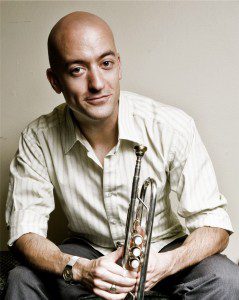SPRINGFIELD – I always wax nostalgic when I get to attend a Springfield Symphony Orchestra concert. My first arts marketing job in western Massachusetts was as the Orchestra’s marketing and public relations director, and the memories are great. The orchestra performed double the concerts it does today; the musicians were superb, the guest artists top of the line, and the audience and community support was incredible. Of course, Springfield was different then – a vibrant downtown with shops, restaurants, department stores, theatres – a destination for entertainment.
Fast forward 30 years, and The Springfield Symphony survives in a down-on-its-luck downtown that’s waiting to win big when the casino comes to town. Symphony Hall is a little worse for wear, and the shopping and dining and entertainment options are slimmer. The quality of the orchestra remains top-notch, and the Springfield Symphony remains on a par with larger orchestras in bigger metropolitan areas. They sound great as they cross the centuries from Handel to Copland. Bottom line, we’re lucky to have this ensemble in our neighborhood.
Kevin Rhodes is the consummate Maestro, both in terms of programming, and in finding the right cadence, rhythms and balanced nuance in each piece of music to make the performance shine. When Rhodes is on the podium, and he should be there more often, he and the orchestra are brilliant. Rhodes spends a lot of time conducting ballet, and his physical movements while on the podium are fascinating to watch. He’s never still, always in the rhythm of the moment.
As a theatre reporter who has spent a lot of time working in the worlds of classical music, opera, and ballet, I tend to seek the theatricality in the music being performed. The opening piece, Handel’s Overture from Music for the Royal Fireworks, evokes the imagery and tones of a Masterpiece Theatre score, and Albinoni’s Adagio in G Minor, which has frequently been adapted for movie and TV scores, is rich and romantic.
This concert showcased Principal Trumpet Thomas Bergeron, a South Hadley native, who has made his mark internationally in classical music, jazz, fusion, and teaching. His performance in the Haydn Trumpet Concerto, which is a challenging piece of music for the instrument, was smooth, well-rendered, and technically refined. Bergeron has a great stage presence, and he, Maestro Rhodes, and the orchestra worked well together.
For me, Aaron Copland’s Quiet City, adapted from incidental music Copland composed for the 1939 Irwin Shaw play of the same name, was a highlight of the evening. I’d never heard it performed live before. Quiet City comes from the same era as Copland’s film scores. It’s poignant, intense, and soloist Thomas Bergeron on trumpet and Nancy Dimock on English Horn excelled.
You can hear Thomas Bergeron and his ensemble perform jazz on November 21 at Springfield’s Bing Arts Center. He performs with his Atlantic Brass Quintet with the Longmeadow Chamber Music Society on January 8. He’s also playing trumpet in the pit for the Broadway musical Finding Neverland on November 24-28. For details: http://www.thomasbergeronmusic.com/.
The Springfield Symphony Orchestra’s classical season continues on February 5, with Maestro Rhodes on the podium conducting a program highlighting Scandanavian composers Grieg, Sibelius, and Neilsen. The annual Home for the Follidays Pops (December 5) with Bruce Hangen, conductor, and a Sinatra Centennial tribute concert (February 13) are also upcoming. For details: 413-733-2291 or www.springfieldsymphony.org.
The Springfield Symphony Orchestra, Kevin Rhodes, Music Director, performing Handel’s Music for the Royal Fireworks; Albinoni’s Adagio in G minor; Haydn’s Trumpet Concerto in E Flat (Soloist: Thomas Bergeron, Trumpet); Copland’s Quiet City (Soloists: Thomas Bergeron, Trumpet and Nancy Dimock, English Horn); Mozart Symphony No. 39. November 8, Springfield Symphony Hall. For details: 413-733-2291 or www.springfieldsymphony.org.
Mark G. Auerbach studied theatre at American University and the Yale School of Drama. He’s worked for arts organizations and reported on theatre for newspapers and radio.




